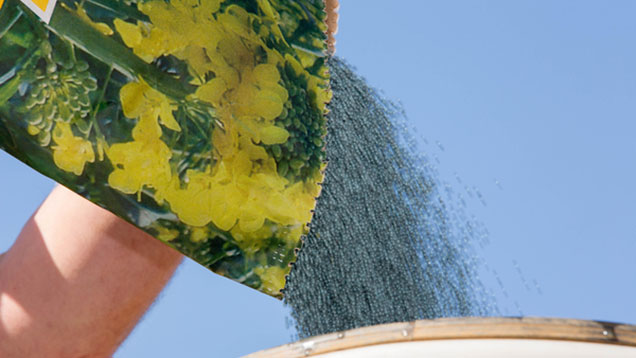Four counties to be granted access to neonicotinoids
 ©Tim Scrivener
©Tim Scrivener Farms in four English counties will have access to neonicotinoid-treated oilseed rape this autumn under “emergency use” legislation, the NFU has said.
Those counties are Suffolk, Cambridgeshire, Bedfordshire and Hertfordshire, where in total about 90,000ha of oilseed rape was grown last year.
However, the emergency use of neonicotinoid treated OSR seed can only be used to treat a maximum of 30,000ha (5%) of oilseed rape plantings in England this summer/autumn.
See also: Neonicotinoid emergency use approved for 5% of OSR area
The authorisation from the Chemicals Regulation Directorate (CRD) only allows treated seed distribution to be targeted to areas considered of “highest risk of attacks from cabbage stem flea beetle”.
Evidence presented to the UK Expert Committee on Pesticides showed that these four counties were the hardest hit by flea beetle in the 2014/15 season.
The authorisations will apply for certified seed only. Growers will have access to two products – Bayer CropScience’s Modesto (clothianidin) and Syngenta’s Cruiser OSR (thiamethoxam).
Farmers who use the products will be asked to take part in scientific research to measure the impact of the plant protection products on their crops.
The emergency use has been granted for 120 days, from Thursday 23 July. Discussions on the logistics of distributing the seed are under way.
Farmer-owned oilseeds specialist United Oilseeds said it will receive a “percentage allocation of seed treatment”.
But this use will be limited by total chemical volume – 950 litres of Modesto and 950 litres of Cruiser only – and not by hectarage, as previously reported.
NFU vice-president Guy Smith said: “We have been working with the suppliers to better understand how the neonicotinoid seed treatments will be made available after the NFU secured the emergency use authorisation to provide much needed protection from the pest cabbage stem flea beetle.
“We understand the emergency authorisations will apply to certified seed only and there will be strict stewardship agreements in place governing its use.
“It is important to have the details finalised so that farmers know how they can access this treated seed.”
As an oilseed rape grower who suffered flea beetle damage last year, farming in Essex, My Smith said he fully understood the frustration of those growers who will not have access to neonicotinoid seed dressings this year when trying to establish crops.
But he added: “If we are to lobby in the future for a return to the situation where all growers can benefit from this technology, then getting a few thousand acres of oilseed rape sown with neonicotinoid seed dressings will help demonstrate their importance for all of us.”
Neonicotinoids are subject to a two-year ban imposed by the EU in December 2013 for use on flowering crops, such as oilseed rape, sunflowers and barley, amid concerns over the impact of their use on bee health.
However, Defra has used its powers to temporarily lift the ban to allow use of these two neonicotinoid products on a limited area, following an application for emergency use from the NFU.

